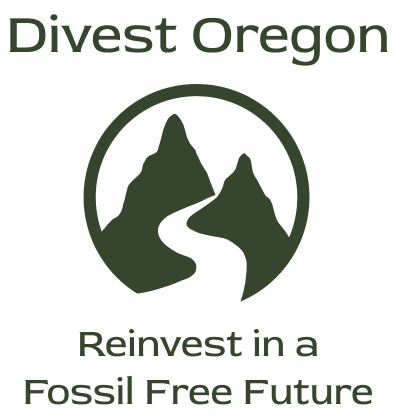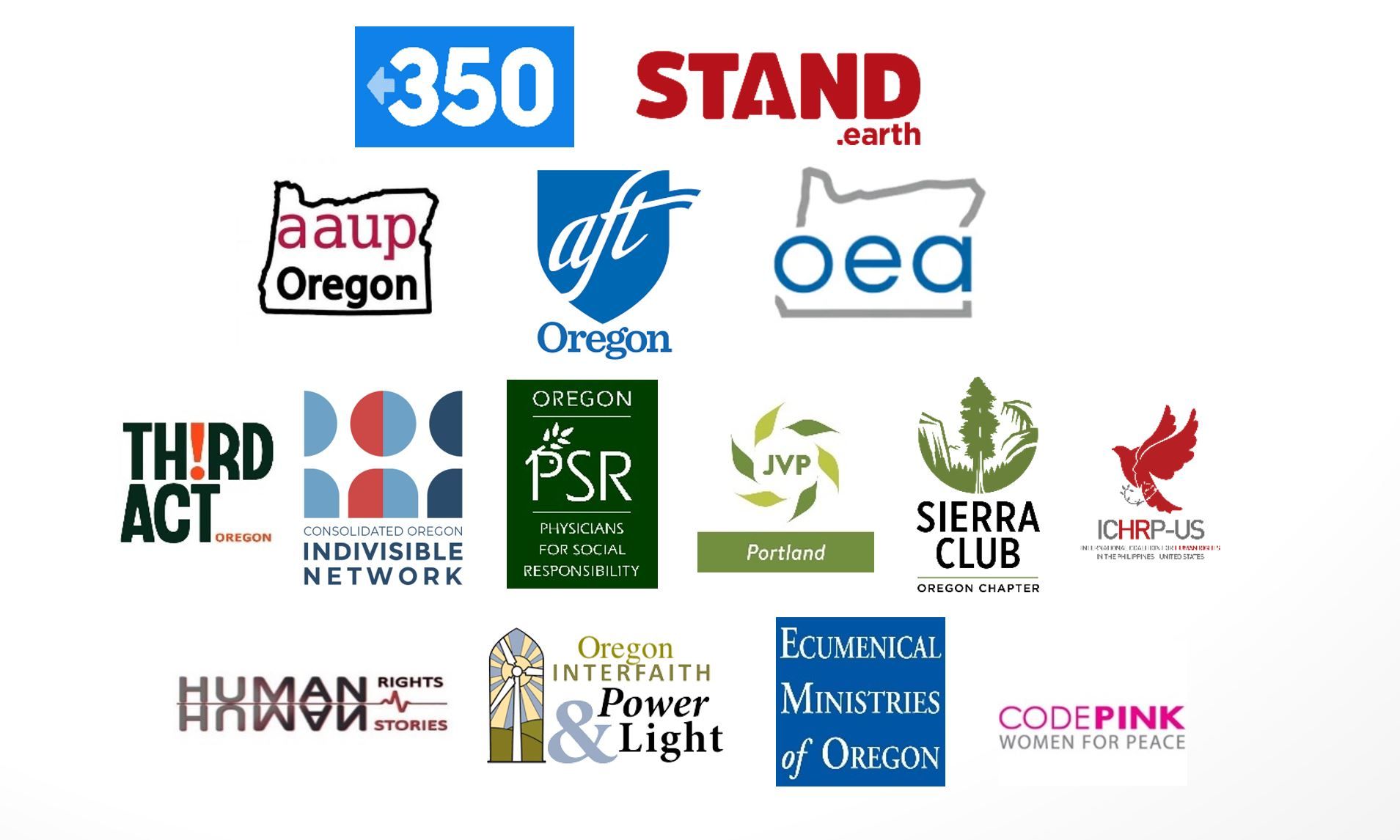Oregon Treasury’s Investment Failures
PERS Fossil Fuel Investments Fund Human Rights Violations, Community Destruction, and Climate Chaos
A Report by Divest Oregon
April 2023
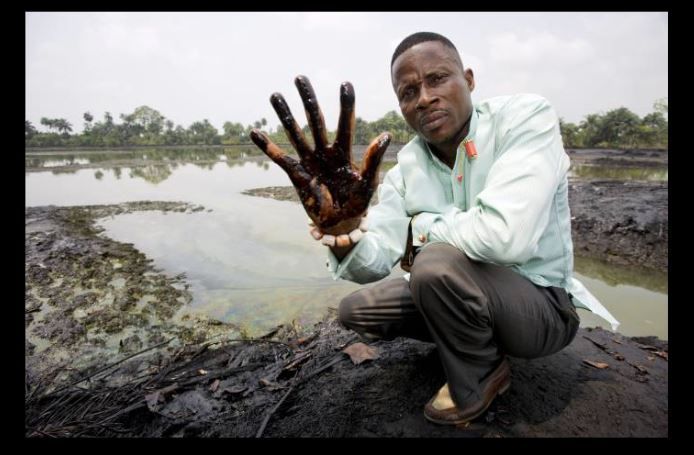
Marten Van Dijl/EPA
Report Summary
The Oregon State Treasury claims it is committed to sustainable investing.
It says climate risk is a growing concern for investors and that it is evaluating and managing climate risks.
It hosted a summit on sustainable investing in 2018.
What has come of all this talk?
In 2021 the United Nations ranked public pension funds by ESG standards that each fund used to screen potential investments.
Oregon’s Public Employees Retirement Fund ranked 46th out of 47 funds for its failure to actually implement and report on the fundamental aspects of sustainable investing known by the term ESG: Environmental, Social and Governance.
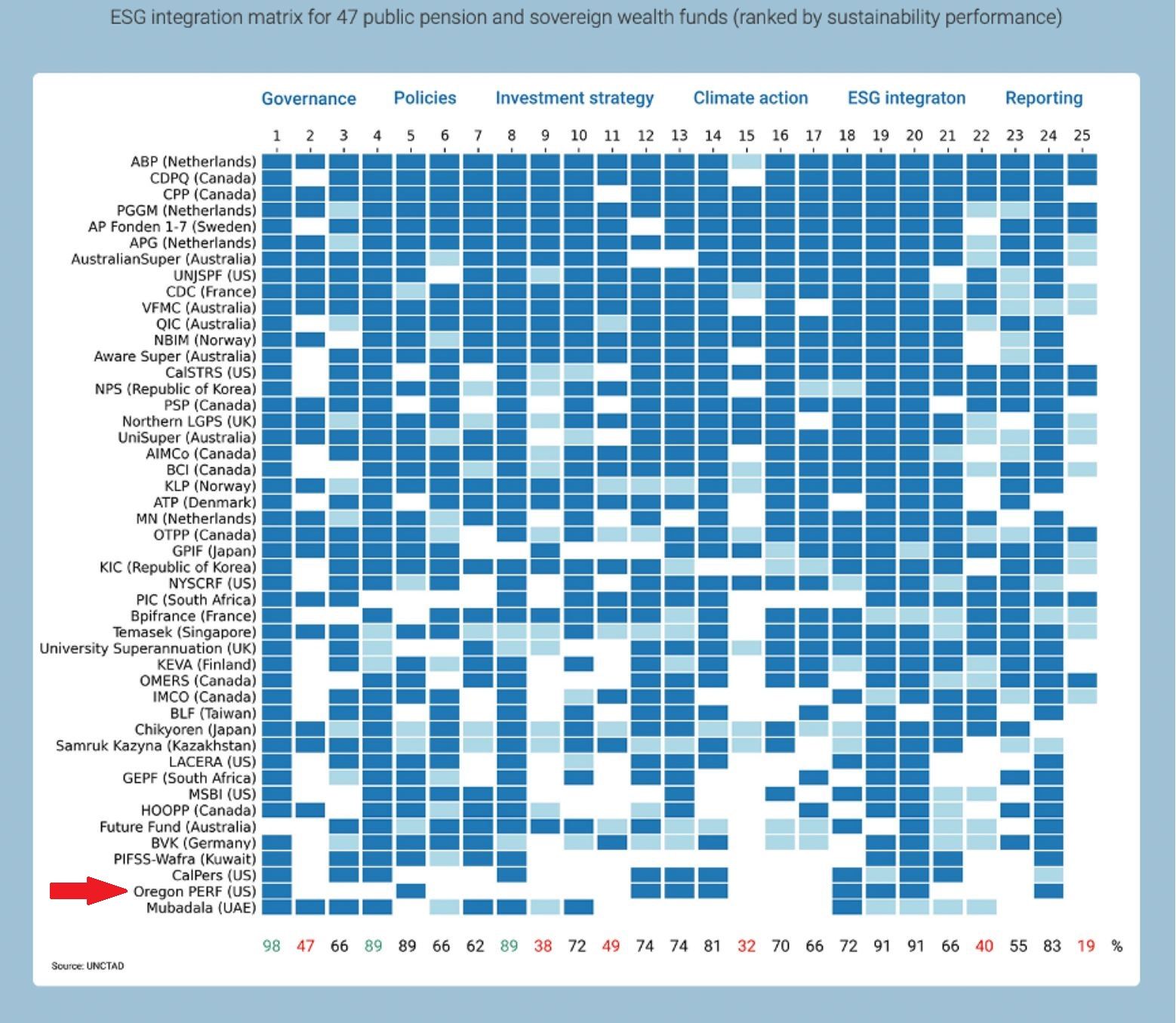
The UN reviewers found that Oregon Treasury had:
- no ESG exclusions for investment decisions
- no stated targets / goals for ESG investing
- no specific sector strategies (e.g., renewable energy)
- no climate risk metric monitoring or reporting of the use of specific climate targets / goals
- no evaluation or auditing of its ESG performance with specific metrics
- no evidence of any team dedicated to coordinate ESG investments
In this report, Divest Oregon examines what the Treasury is actually investing in.
The report focuses on investments by the Oregon State Treasury that:
- worsen the climate crisis and
- violate people’s right to a healthy environment and
- directly cause severe injury or threat of such injury and
- cause negative economic consequence to the Oregon Treasury from:
- cost overruns lead to unprofitable projects and poor returns,
- the energy sector transition away from fossil fuels leads to stranded assets,
- lost opportunity for those funds trapped in private investment because long term deals are not able to be moved to better investments
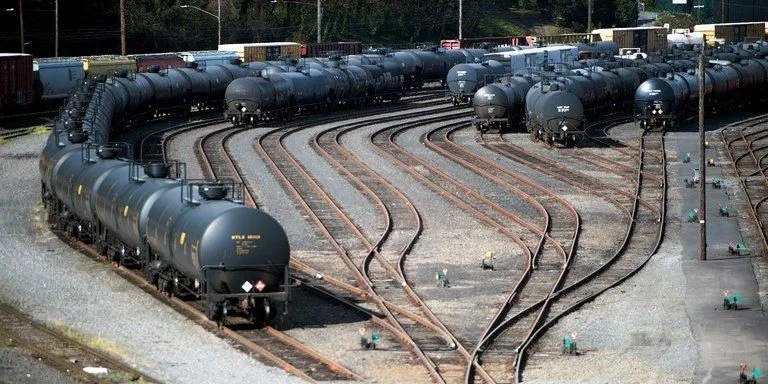
Tank cars on tracks outside of Zenith Energy oil terminal in Portland, OR. Tony Schick / OPB
The Treasury opposes ending new fossil fuel investments and
continues investing in fossil fuel companies.
The examples in this report illustrate:
- the investment choices the Treasury is making,
- failing ESG screening at the Treasury, and
- how public employee retirement funds are being used.
Example Projects
Oregon's Public Employee Funds Support
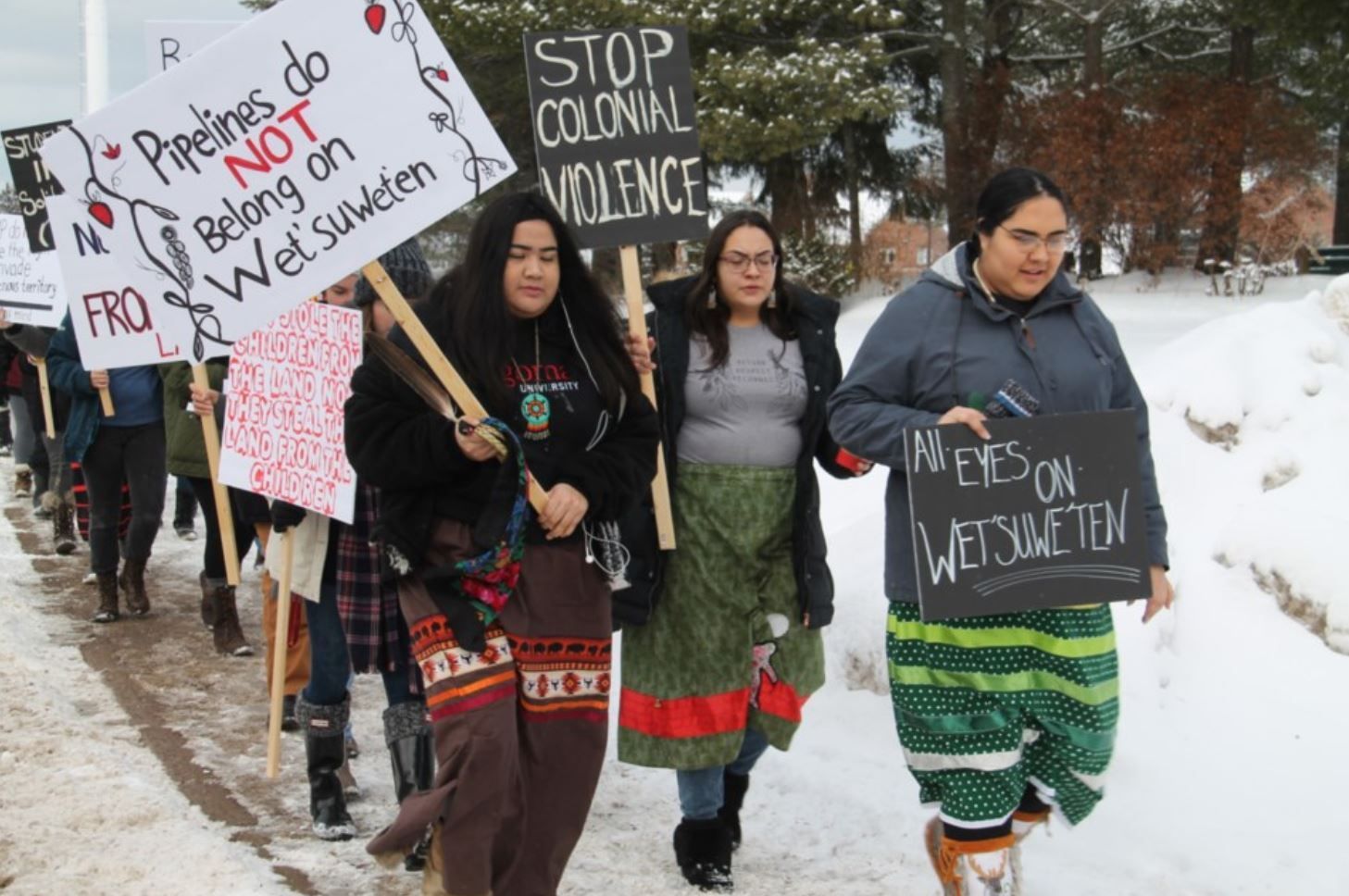
Protestors oppose the BC Coastal GasLink pipeline project in solidarity with Wet'suwet'en First Nation. Darren Taylor/SooToday
TC Energy: Coastal GasLink
Pipeline construction at the expense of Indigenous people
The Coastal GasLink Project is being built to deliver fracked gas from British Columbia to a liquified natural gas export facility on the West Coast. Wet’suwet’en hereditary chiefs’ oppose having the pipeline traverse their unceded territory without their consent.
The Coastal GasLink project has been delayed, with cost overruns, due to 1) resistance to violation of Indigenous land rights, 2) violence against Indigenous women, 3) objection to militarized response to that resistance, and 4) resulting litigation.
Another project by TC Energy is the GTN XPress Pipeline Expansion that will cut through the center of pristine Oregon wilderness.

Incomel/Getty Images
ConocoPhillips: Willow Project
30 years of massive new carbon emissions
ConocoPhillips is Alaska's largest crude oil producer and largest owner of exploration leases, with approximately 1.6 million net undeveloped acres at year-end 2021. Alaska is just one aspect of their global reach. The impact on the Indigenous population includes both destruction of their livelihood and way of life and extreme threat of environmental catastrophe and catastrophic gas leaks. For more info see the report and this blog entry.
Blackstone and ArcLight Capital: Gavin Coal-Fired Power Plant
Responsible for the demise of an entire Ohio community
The Gavin Power Plant has been cited by the EPA for dumping toxic coal waste in the Ohio River and contaminating groundwater. It destroyed a neighboring community. After the Oregon Treasury invested, continued emissions have made it the sixth-largest CO2 emitting coal plant in the United States.
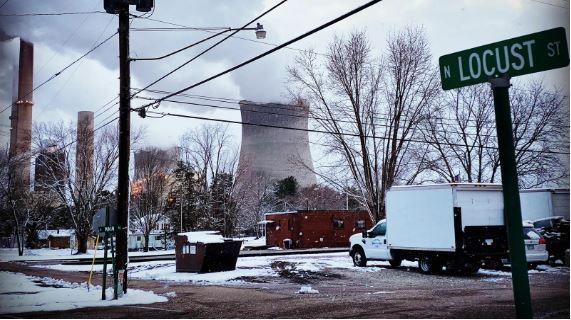
Cheshire Ohio was once a bustling small town, but now the majority of its residents have gone. Harmon Leon
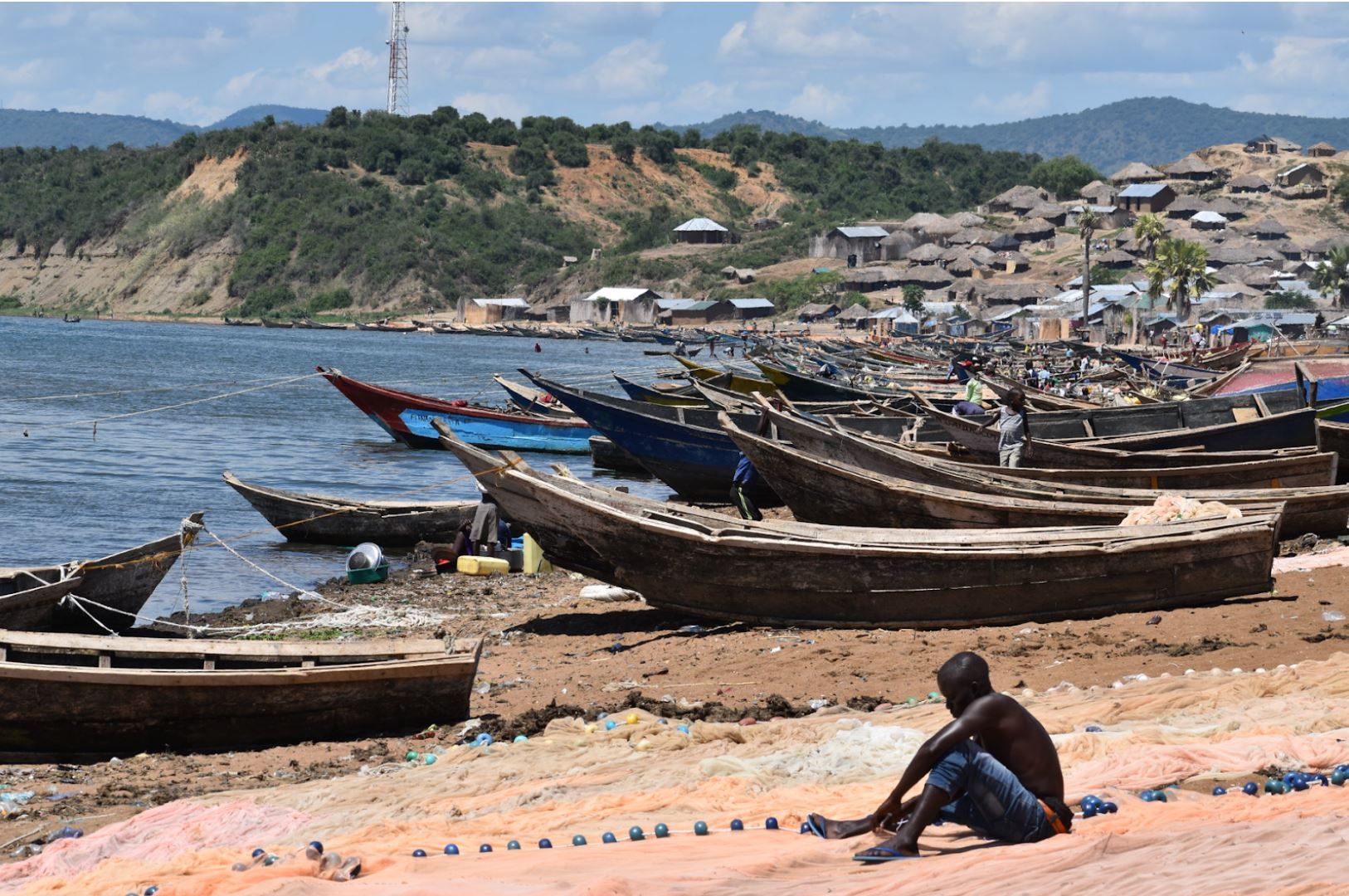
Andrew Bogrand/Oxfam
CNOOC and TotalEnergies:
The East African Crude Oil Pipeline
Destruction of communities, livelihood and ecosystems
Massive deception, land grabs, and destruction of livelihood and ecosystems have jeopardized project financing of the East African Crude Oil Pipeline (EACOP). Both China National Oil Offshore Corporation (CNOOC) and TotalEnergies have a history of human rights abuse charges against them. The pipeline would worsen the global climate crisis and thwart key transition to renewable energy. The African continent holds 39% of the world’s total renewable energy potential.
In their June 2022 report,
A Risky Pipeline that Endangers East Africa, the Climate Safe Pensions Network documented OPERF’s investment and the financial, environmental and human rights risks of EACOP.
ExxonMobil, Eni SPA, and TotalEnergies in Mozambique
Tragedy upon tragedy: Bulldozed villages, forced relocations, guerilla war
In these gas projects, ExxonMobil and TotalEnergies are responsible for community dislocation, land theft, and destruction of livelihood. The gas projects have been a catalyst for insurgency and terror. For example, it has been reported Exxon:
- Promised local communities benefit and then bulldozed villages and forced 557 families to leave their land and belongings
- Failed to pay promised compensation
- Destroyed fishing viability in fishing communities

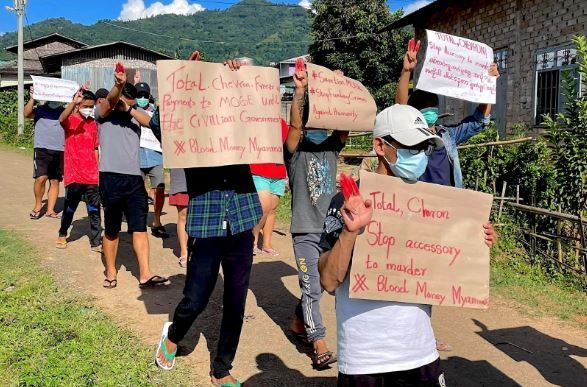
Protesters at a 2021 demonstration in Shan State’s Namkham Township hold signs calling on Total and Chevron to stop funding the junta - Blood Money/Facebook
Chevron and TotalEnergies in Myanmar
Forced labor, humanitarian crisis and dislocation, and terror
In Myanmar, gas companies in which the Treasury continues to invest have been complicit in, and funded, the actions of a regime the United States sanctioned in 1997. They have relied on a brutal military and forced labor to support their fossil fuel projects.
Total’s and Chevron’s belated calls for sanctions and decision to divest arrived many months after international observers highlighted that crimes against humanity were taking place. Throughout the coup, Total and Chevron used disinformation to distance themselves from the military’s human rights atrocities, downplayed the power they have to stop revenues, and exaggerated the impacts of taking action.
Chevron
Building geothermal at the expense of the Filipino people and expanding oil production behind a green pledge
Chevron is responsible for violation of indigenous land rights, extreme repression in response to resistance, and ongoing environmental degradation that destroys livelihoods and culture.
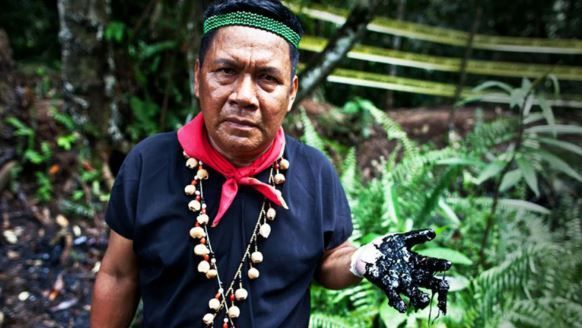
The resistance is global: Image from a similar fight against Chevron in Ecuador, for clean water, which continues even after a court victory. Alexander Zaitchik / Grist
Because of these human rights abuses, there is a growing financial risk due to litigation payouts.
"Things have to get worse for the oil companies... Even if they’ve got a pretty good chance of winning the litigation in places, the discovery of pretty clearcut wrong doing – that they knew their product was bad and they were lying to the public – really weakens the industry’s ability to resist legislation and settlements.”
Daniel Farber, a law professor at the University of California, Berkeley
and director of the Center for Law, Energy, and the Environment

